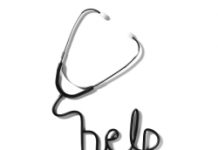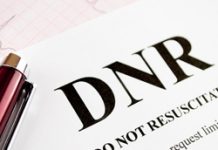
1. CONSENT
Junior doctors should not feel pressurised to do anything beyond their knowledge, experience and competence, this includes obtaining consent for a procedure that they are not familiar with. Failure to take consent properly can lead to medicolegal problems including complaints, claims and disciplinary proceedings. Consent is a process, rather than a form-filling exercise. Recent GMC guidance emphasises the importance of working in partnership with patients.
SURVIVAL TIPS
- Always act in your patient’s best interests.
- Record in the notes what a patient has been told.
- Use your common sense – consent is patient-specific and depends on the individual’s circumstances, including age, lifestyle, occupation, sporting interests, expectations, etc. It may well be that you are not in a position to advise fully, eg, professional sportspeople.
- Patients are presumed competent to consent unless proved otherwise.
- Any competent adult in the UK can refuse treatment.
- The law concerning incompetent adults, who are unable to give valid consent, is more complicated, and is different in England, Wales, Scotland and Northern Ireland. If you are in doubt consult senior colleagues or your MDO.
- Remember there are circumstances where a child can give consent without reference to a parent – if in doubt consult a senior colleague.
2. PRESCRIBING
Prescribing is fraught with complications – from over-prescribing, transferring incorrectly to new charts and prescribing for the wrong patient, to incorrect dosages, interactions and allergies. It is imperative that you have a good knowledge of the pharmacology and the legislation surrounding drugs, and the Trust protocols and controlled drug routines – if unsure, ask.
SURVIVAL TIPS
- Prescriptions should clearly identify the patient, the drug, the dose, frequency, route of administration and start/finish dates, be written or typed and be signed by the prescriber.
- Be aware of and document a patient’s drug allergies.
- Good handovers require good leadership and communication.
- Refer to the BNF. It is accessible online if your hard copy goes walkabout.
- Verbal prescriptions are only acceptable in emergency situations and should be written up at the first available opportunity. Particular care should be taken that the correct drug and dose is used.
3. CONFIDENTIALITY
Confidentiality is central to maintaining trust between patients and doctors. As a doctor, you have access to sensitive personal information about patients and you have a legal and ethical duty to keep this information confidential, unless the patient consents to the disclosure, or disclosure is required by law or is necessary in the public interest.
SURVIVAL TIPS
- Before disclosing confidential information, always consider obtaining consent.
- Take advice from senior colleagues.
- Remember that confidential information includes the patient’s name.
- Competent children have the same rights to confidentiality as adults.
- Doctors can breach confidentiality when their duty to society overrides their duty to individual patients and it is deemed to be in the public interest.
- Doctors are required to report to various authorities a range of issues, including notifiable diseases (eg, TB), births, illegal abortions and people suspected of terrorist activity.
- The courts can also require doctors to disclose information, although it would be a good idea to contact MPS if you find yourself presented with a court order.
- High-risk areas where breaches can occur are lifts, canteens, computers, printers, wards, emergency departments, pubs and restaurants.
- Be careful not to leave memory sticks or handover sheets lying around.
4. RECORD KEEPING
Good medical records – whether electronic or handwritten – are essential for the continuity of care of your patients. The notes will also form the basis of the hospital’s defence should there be any future litigation against your hospital. Notes are a reflection of the quality of care given so get into the habit of writing comprehensive and contemporaneous notes.
SURVIVAL TIPS
- Always date and sign your notes, whether written or on computer. Don’t change them. If you realise later that they are factually inaccurate, add an amendment.
- Any correction must be clearly shown as an alteration, complete with the date the amendment was made, and your name.
- Making good notes should become habitual.
- Document decisions made, any discussions, information given, relevant history, clinical findings, patient progress, investigations, results, consent and referrals.
- Medical records can contain a wide range of material, such as handwritten notes, computerised records, correspondence between health professionals, lab reports, imaging records, photographs, video and other recordings and printouts from monitoring equipment.
- Do not write offensive or gratuitous comments – eg, racist, sexist or ageist remarks. Only include things that are relevant to the health record.
- Patients have a right to access their own medical records under the Data Protection Act.
5. PROBITY
Good Medical Practice advises doctors that they must be honest and trustworthy when signing forms, reports and other documents. It also requires doctors to make sure that any documents they write or sign are not false or misleading. Falling under this category is the requirement for any junior doctor to inform the GMC if they have accepted a caution, been charged with a criminal offence, or if they have been found unfit to practise by a professional body anywhere in the world. It also includes the requirement to take up any post that you have formally accepted.
SURVIVAL TIPS
- If you are uncertain double check your work with a senior.
- Take steps to verify what you are saying. Never sign a form unless you have read it and you are absolutely sure that what you are saying is true.
- Probity means being honest and trustworthy and acting with integrity.
- Be honest about your experiences, qualifications and position.
- Be honest in all your written and spoken statements, whether you are giving evidence or acting as a witness in litigation.
- You must be open and honest with any financial arrangements with patients and employers, insurers and other organisations or individuals.
- Assume that all records will be seen by the patient and/or others, eg, GMC, court.






































